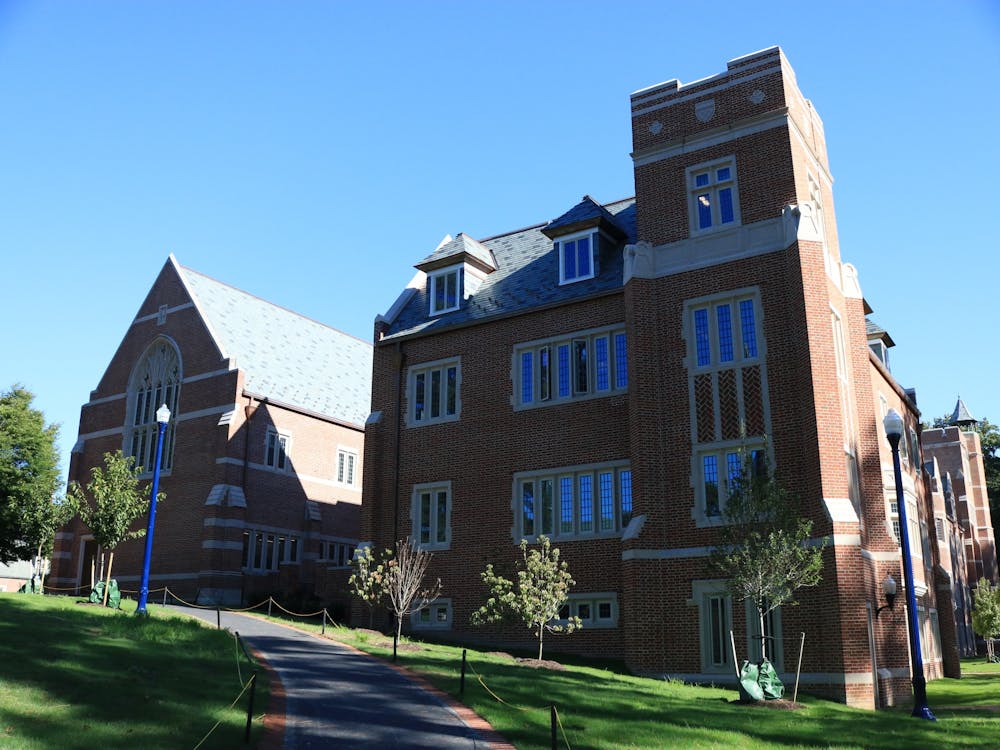Since 2002, Carol Parish, an associate professor of chemistry at the University of Richmond, has been working with a molecule that could change the way cancer is treated.
Parish has been doing research and working toward the creation of Enediyne Warhead drugs, which, if synthesized, could be an alternative to chemotherapy.
Interested in both chemistry and physics, Parish said she had enjoyed combining her two passions and applying them to problems in biology. The problem in this case is cancer, and more specifically, chemotherapy's inability to leave healthy cells unharmed while destroying cancer cells. Enediyne Warhead Drugs would work differently, Parish said.
"Enediyne molecules are non-cyclic with a lot of electron density," Parish explained. "And that causes the molecule to form a ring, and the radicals will attack DNA and kill a cell. What we are trying to do is tailor it to kill just cancer cells and not healthy ones."
Parish, who has been at the university for four years, received a grant for her work on the anti-cancer drugs from the National Science Foundation this past May, which ensures her three years of funding totaling $267,000. Parish said she had been thrilled to receive the grant because it ensured she would not have to worry about funding again until 2011.
"One of the most important things for scientists is to make sure you have funding," Parish said.
Parish currently has 10 research students working with her on the project.
"I really enjoy doing cutting-edge
research with undergraduate students," Parish said.
Parish and her research students work on three supercomputers on campus, running simulations of cell behavior. Sophomore Angela Xie, a biochemistry major who began researching with Parish over the summer, said she preferred this type of computational chemistry to working in a wet lab.
"To me, working with a supercomputer versus working in a wet lab is like typing versus handwriting," Xie said.
Students work on molecular modeling on a supercomputer named "Goddess" in the Gottwald Science Center. Xie said she would be researching several hours a week during the school year. She said one of the benefits of working with Parish was that each research student would have at least one paper published during his or her research.
Enjoy what you're reading?
Signup for our newsletter
Senior Evan Wang has been researching with Parish since his freshman year, and said it had been the best part of his undergraduate experience.
"In research, Dr. Parish treats us as equals," Wang said. "And she is a fun person to work for."
Wang traveled to Vienna during his sophomore year and this past summer to work with chemists at the University of Vienna. Wang said he had not been surprised that Parish had received a new grant.
"With the strength of our research, we gain a lot of support," Wang said.
Wang described the Enediyne Warhead Drugs as a very clever idea, and said it had been interesting to look at the variations of the Enediyne molecule.
Sophomore Anna Parker, who was working on a research project under Parish on damaged DNA bases, said she had enjoyed working with Parish because of her enthusiasm and how well she treated students.
"She's excited about research," Parker said. "And that's good because it gets us excited."
Contact reporter Kate Foss at katie.foss@richmond.edu
Support independent student media
You can make a tax-deductible donation by clicking the button below, which takes you to our secure PayPal account. The page is set up to receive contributions in whatever amount you designate. We look forward to using the money we raise to further our mission of providing honest and accurate information to students, faculty, staff, alumni and others in the general public.
Donate Now


